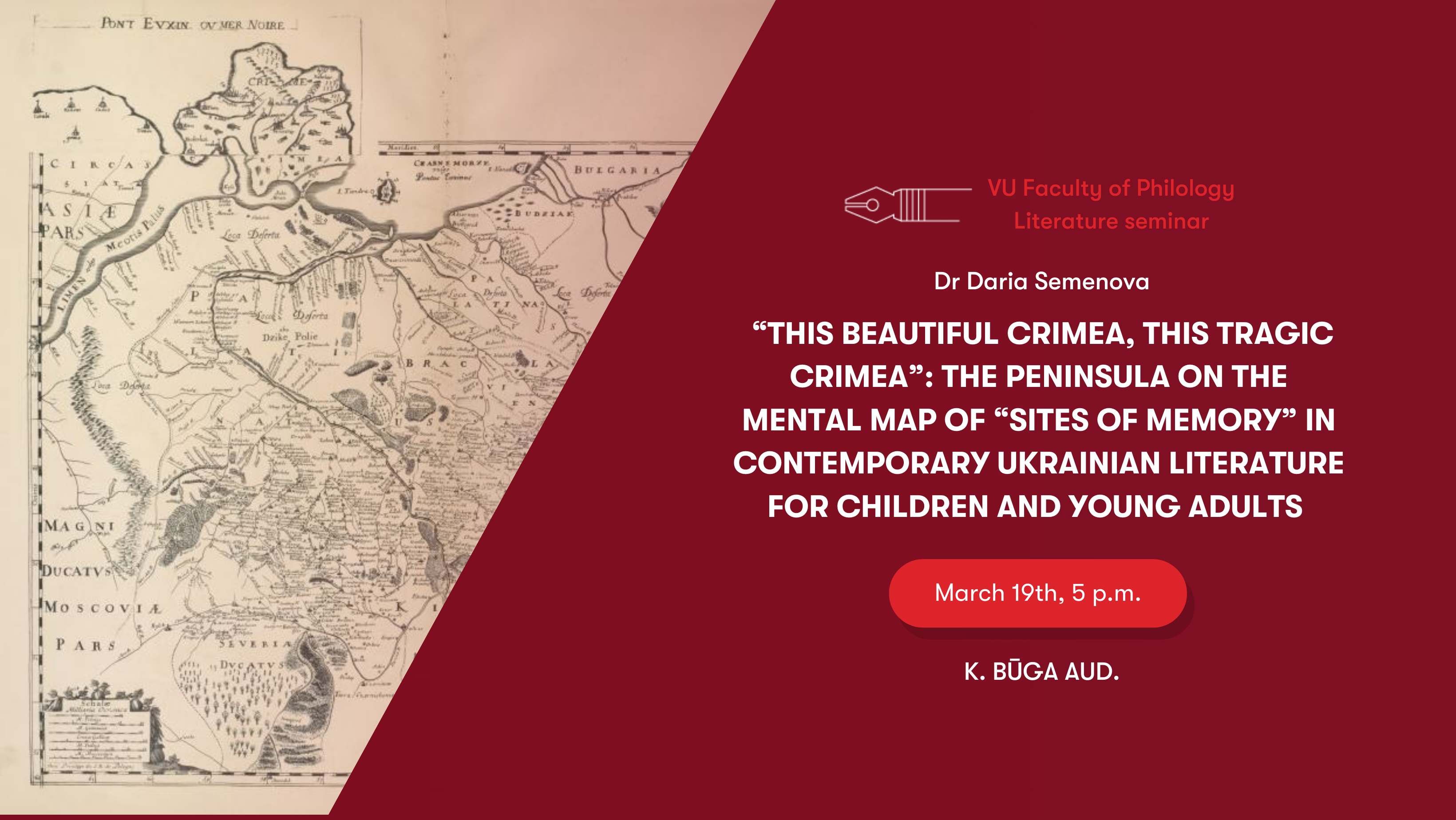We cordially invite you to the Faculty’s Literature Seminar, which will be held in English, and will take place on Tuesday, 19 March, at 5 p.m. in Kazimieras Būga Auditorium. This time our speaker will be the post-doctoral fellow of the Institute for Literary, Cultural and Translation Studies Dr Daria Semenova.
“This beautiful Crimea, this tragic Crimea”: the peninsula on the mental map of “sites of memory” in contemporary Ukrainian literature for children and young adults
Abstract: In the early 2000s, Ukrainian authors turned to entertaining and attention-grabbing potential of children’s detective stories and adventure fiction to familiarize their young readers with topics from Ukrainian history. This presentation will characterize the peculiar genre conglomerate in which detective plots gravitated around historic artefacts and places where notable historic events took place – thus promoting a mental map of the national space and a narrative of collective memory. The Crimean Peninsula was given a very peripheral place on this mental map, if any, before the occupation in 2014. The second part of the presentation shows how, paradoxically, Crimea and its indigenous inhabitants, Crimean Tatars, get centered in stories for children and young adults about national memory more often since the late 2010s. The final part will analyze how contemporary historic fiction for children inscribes events from the history of Crimean Tatars into the kaleidoscope of multi-cultural stories that took place on the territory of present-day Ukraine.
Daria Semenova is primarily interested in the potential of genre fiction to shape the readers’ understanding of the world and themselves. She obtained her PhD in Slavic Languages and Literatures from the University of Illinois at Urbana-Champaign in 2023, with a dissertation entitled “At Home and Away: Community Belonging in Polish, Russian, and Ukrainian Adventure Fiction, 1918-1960.” The current presentation is part of her new research project dedicated to space and memory in Ukrainian fiction for children and young adults since independence, on which she is working as a post-doctoral fellow at Vilnius University.

